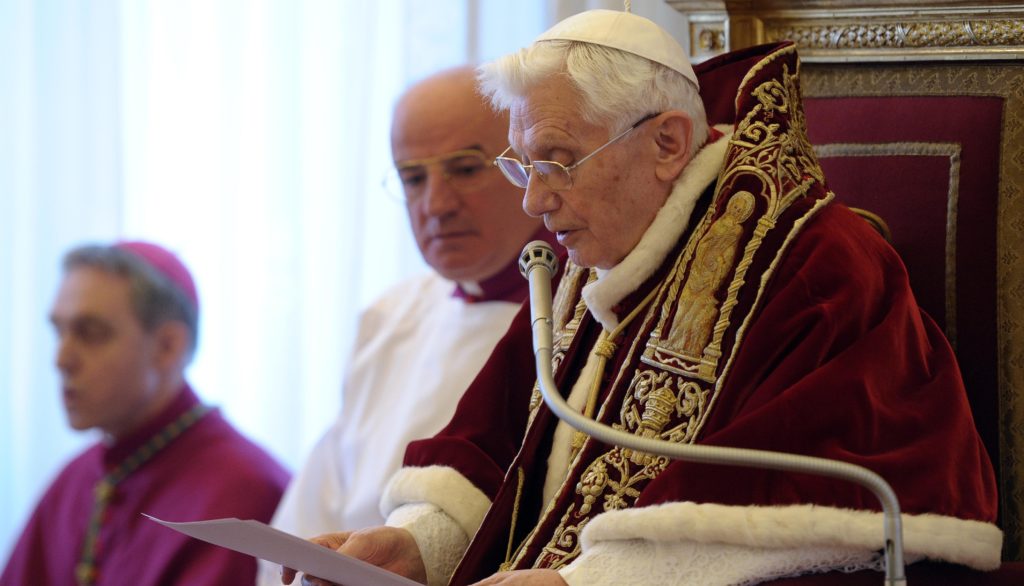On February 11, 2013, Pope Benedict XVI announced before the cardinals, to the great surprise of all, that he no longer had sufficient "strength" to continue exercising the Petrine ministry, and that he was therefore resigning to continue at the head of "the barque of Peter".
"After having repeatedly examined my conscience before God, I have come to the certainty that, because of my advanced age, I no longer have the strength to exercise the Petrine ministry adequately". It was with these words with which he surprised the world, with which he departed, giving a great lesson in humility.
A vigor that had diminished
Benedict explained that he was "well aware that this ministry, by its spiritual nature, must be carried out not only by works and words, but also and to no lesser degree by suffering and prayer."
However, he explained that "in today's world, subject to rapid transformations and shaken by questions of great importance for the life of the faith, in order to steer the boat of St. Peter and proclaim the Gospel, it is necessary to have vigor of both body and spirit, a vigor that, in recent months, has diminished in me to such an extent that I must recognize my inability to exercise well the ministry entrusted to me".
Resignation from the Petrine ministry
And so, he conveyed his decision to announce "in full freedom, I declare that I renounce the ministry of Bishop of Rome, Successor of St. Peter, which was entrusted to me through the Cardinals on April 19, 2005, so that, from February 28, 2013, at 8 p.m., the See of Rome, the See of St. Peter, will become vacant and the conclave for the election of the new Supreme Pontiff must be convened, through whoever has competence,".
I thank you from the bottom of my heart for all the love and hard work with which you have carried the burden of my ministry with me, and I ask forgiveness for all my shortcomings.
Benedict XVIResignation statement, February 11, 2013
In addition to this decision, from which we can all learn, he has also left us other great lessons throughout his almost eight years of pontificate.
A theological legacy
On the one hand, his theological work. Specifically, his masterpiece "Jesus of Nazareth", where he shows that the Jesus who appears in the Gospels is the same Jesus who existed. It consists of three volumes, in which he comments on the life of Christ. In fact, he wrote it during his little free time.
Benedict XVI is a great theologian. Because of this concern, he organized a synod for Catholics to better appreciate the Bible; where he explained that the Second Vatican Council cannot be read as a break with the past but as continuity; and he taught how to appreciate the liturgical meaning of the ceremonies.
His speeches in Europe
His three major political speeches on the contribution of religion to public debate are another aspect of his legacy. In particular, they are the speeches he delivered in the French Academy (College des Bernardins)in the English Parliament (Westminster Hall) and in the German Parliament (Bundestag).
It is clear that in fundamental questions of law, in which the dignity of man and humanity are at stake, the majority principle is not enough.
Benedict XVISpeech in the German Parliament
Benedict XVI's dialogue
Finally, Benedict demonstrated a special willingness to dialogue. The now Pope Emeritus extended a hand to the Fraternity of St. Pius X, the traditionalist group founded by Marcel Lefebvre.
On the other hand, he also promoted the Catholic Church's relations with the Jewish community, traveling to the Holy Land and holding meetings with rabbinical organizations. After the Regensburg crisis, he multiplied his gestures to reject the idea of a conflict of civilizations between Christians and Muslims.







